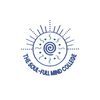
Peter Weir
Clicking on the Send Me Details Now button opens an enquiry form where you can message Peter Weir directly
Peter Weir Myotherapy
Focus areas
Welcome To Peter Weir Myotherapy
We provide a huge range of treatments to keep you and your family feeling vibrant and well, why not contact us today to discuss how we can increase your wellbeing?
At Peter Weir Myotherapy we beleve our profesional development is the key to providing the highest quality treatment for you and your family, below are profiles of our team.
Peter Weir Myotherapist (Adv Dip Rem Massage)
I started studying massage in 2000. Prior to that I was a Qualified Chef. I needed a change of career as I had been a chef since I was 17 years old and had enough of the crazy hours and stress that went with it.
I completed my Diploma of Remedial Massage in 2002, in 2005 I was contracted with two Abattoirs to look after the employees which meant on site treatments to approximately 600 workers….. 10 years on and I am still contracted to these work places. I now have two other therapists who assist me.
In 2010 I completed further studies in Myotherapy, the Advanced Diploma of Remedial Massage. This helped me immensely to gain more skills and knowledge such as (SDN) Superficial dry needling, (MET) Muscle energy techniques , electrotherapies, nutrition and more. Since then each year I have completed further professional development in the health field such as : (ART) Active Release Techniques : this technique is very effective in releasing chronic injuries and strains as well as compressed nerve conditions such as Carpel tunnel syndrome, Sciatic pain and plantar fasciitis. I have recently qualified as a full body certified Practitioner in ART (active release techniques).
Other Studies Completed:
Advanced Dry Needling, TMJ syndrome, (FFT) functional Fascial Taping, MyoFascial Cupping, Kinesio taping. CPR and Workplace Level 2 First aid Cert, ART (active release techniques).
What is Myotherapy?
Myotherapy is the assessment, treatment and management of musculoskeletal conditions, which may cause muscular dysfunction and pain thus affecting movement and mobility. Myotherapists utilise a range of treatment techniques to restore and maintain the normal integrity of the soft tissue structures (muscles, tendons, ligaments and fascia).
Trigger points within muscles are an example of muscle dysfunction that can cause deep aching pain, local tenderness, referred pain limiting strength and flexibility. Utilising palpation skills Myotherapists can identify trigger points and deactivate them using various soft tissue manipulation techniques.
Muscular dysfunction can be caused by trauma, overload or misuse of muscles arising from occupational, sporting or recreational activities.
Treatment Modalities used:
SDN: Superficial dry needling - or Myofascial dry needling is a treatment approach adapted from acupuncture that applies fine needles to the musculoskeletal system to deactivate trigger points.
Superficial dry needling is primarily focused on musculoskeletal injuries and as such is utilised as a specialist tool to accompany soft tissue skills.
MFR: Myo Fascia Release is where the thin layer of tissue “Fascia” that surrounds all muscles and organs can become tight, shortened or scarred . MFR is a technique that stretches the fascia back to its normal length or state, therefore returning the body to normal functioning.
MET: Muscle Energy Technique is a manual therapy that uses the gentle muscle contractions of the client to relax and lengthen muscles and normalize joint motion.
Taping :(KT) Kinesio-Taping, (FFT) Functional Fascial Taping and Rigid Taping are specific taping techniques used for a multitude of conditions. Such as tennis elbow, muscle strains, plantar fasciitis sprains etc. These techniques assist in supporting the injury and restoring tissue strength.
MFC: Myofascial Cupping is where special suction cups have a vacuum effect that draws blood supply through the muscle or joint area to assist in repair of the muscle, re oxygenating the area that send nutrients to the injury for repair. There can be some mild superficial bruising associated with this method.
Hot and Cold Therapy: the use of wheat bags are used to dilate the blood supply to the muscle and enable the muscle to relax and stretch out to its original length. Cold packs are used to calm down an inflamed area. Ice is usually recommended on all acute muscle and joint sprains and strains.
The Benefits of Massage:
- Promotes relaxation
- Reduces stress and anxiety
- Improves circulation
- Lowers blood pressure
- Enhances immune system
- Relieves muscle aches and stiffness
- Eliminates toxins
- Improves muscle tone and joint motion
- Promotes deeper end easier breathing
- Improves digestion and elimination
- Promotes healthy skin
- Alleviates discomfort during pregnancy
- Helps relieve tension headaches
- Balances autonomic nervous system
- Promotes faster injury / illness recovery
Contact us today for more information.
Nearby Practitioners
View all
Qt
Focus areas

Holistic Psychology
Focus areas

The Soul-Full Mind College
Focus areas

Annie O'Grady, Certified EFT Practitioner and Master Trainer
Focus areas

Beth Little - Mind and Body
Focus areas
Click on Send Me Details Now to get started
Send Me Details Now